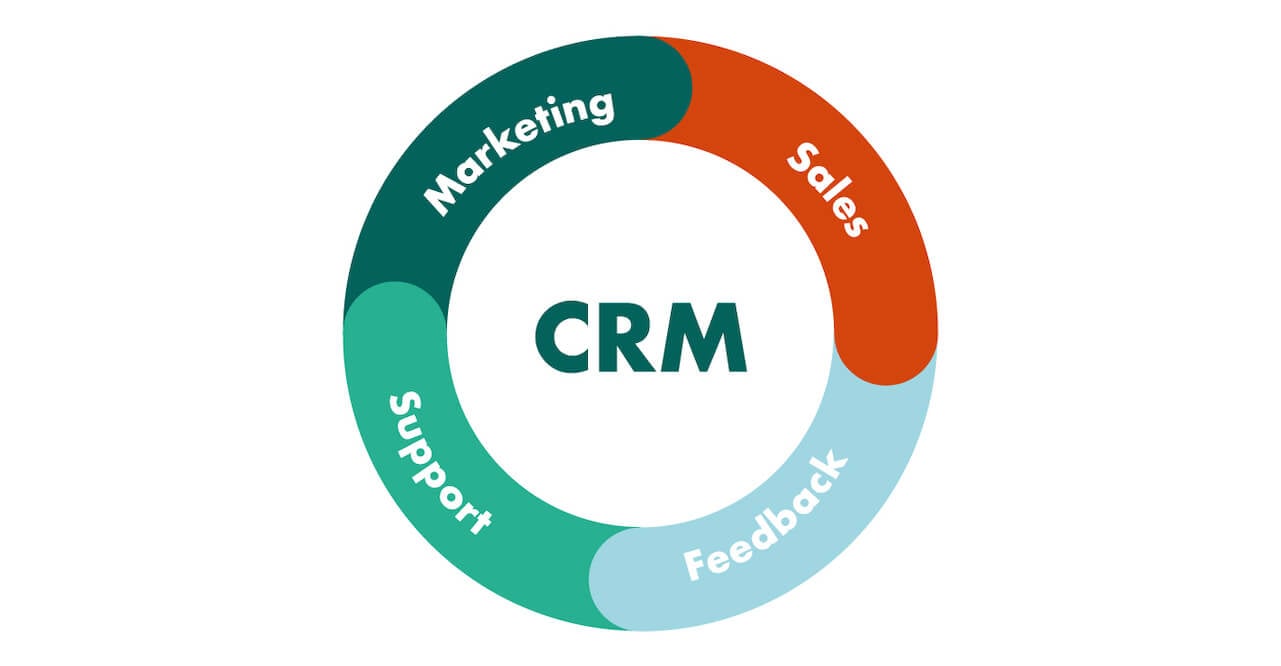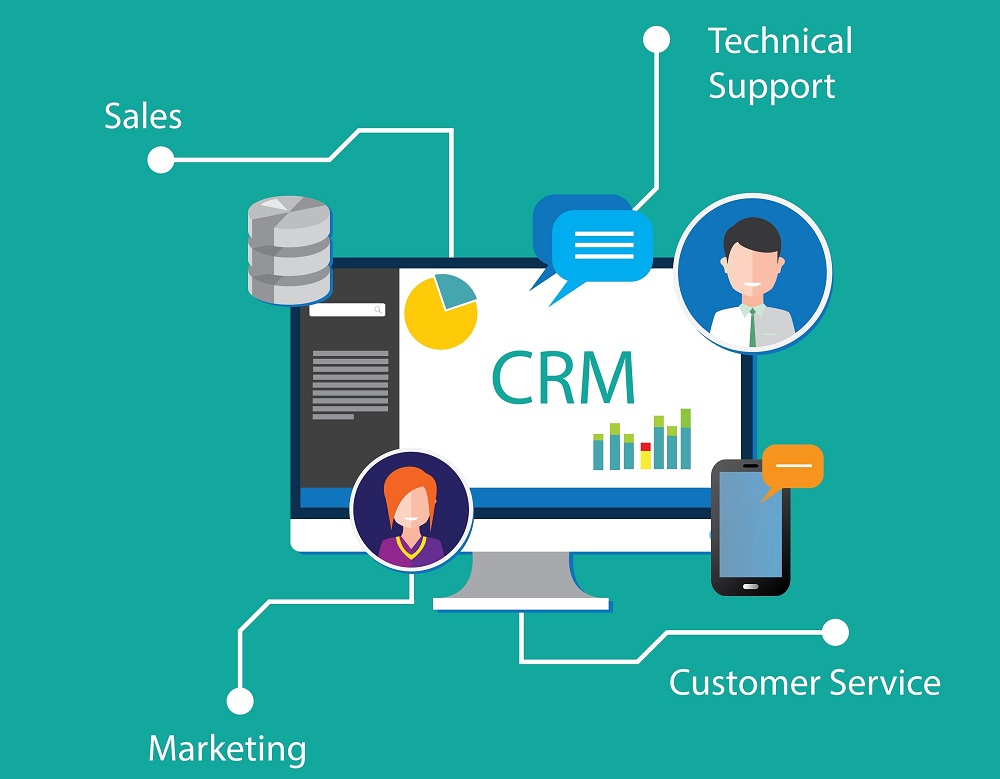CRM software for network marketing has emerged as a game-changer, offering businesses a comprehensive solution to manage relationships, automate processes, and drive growth. With its ability to streamline operations and provide valuable insights, CRM software is becoming indispensable for network marketers seeking to stay ahead in the competitive landscape.
In this article, we will delve into the core functions and benefits of CRM software for network marketing, explore essential features to consider, and provide practical tips for implementation and success.
CRM Software Overview
Customer Relationship Management (CRM) software is a powerful tool that can help network marketing businesses manage their customer relationships and grow their business. CRM software can help businesses track customer interactions, manage sales pipelines, and provide customer support.
There are many benefits to using CRM software for network marketing businesses. CRM software can help businesses:
Increase Sales
- Track customer interactions and identify opportunities to close deals.
- Manage sales pipelines and track progress.
- Provide customer support and resolve issues quickly.
Improve Customer Relationships
- Store customer information in one central location.
- Track customer interactions and preferences.
- Personalize marketing campaigns and communications.
Increase Efficiency
- Automate tasks such as lead generation, email marketing, and customer support.
- Reduce the time spent on administrative tasks.
- Improve communication and collaboration between team members.
Features to Consider
When selecting CRM software for network marketing, consider the following essential features that can enhance your operations:
These features provide a comprehensive solution for managing your network, tracking performance, and driving growth.
Lead Management
- Capture and qualify leads from multiple sources
- Track lead interactions and follow-up activities
- Assign leads to distributors and monitor progress
Contact Management
- Store and organize distributor and customer contacts
- Track contact history, including interactions and orders
- Segment contacts based on demographics, interests, and behaviors
Sales Tracking
- Track sales performance of distributors and teams
- Monitor sales trends and identify growth opportunities
- Generate reports on sales activity, revenue, and commissions
Compensation Management
- Automate commission calculations based on sales and performance
- Track and manage distributor bonuses and incentives
- Provide real-time visibility into earnings and payouts
Training and Development
- Provide online training materials and resources
- Track distributor progress and provide feedback
- Identify training needs and develop targeted programs
Reporting and Analytics
- Generate customized reports on key performance indicators
- Analyze data to identify trends, patterns, and areas for improvement
- Make data-driven decisions to optimize your network marketing strategy
Mobile Access
- Enable distributors to access CRM data and functionality on the go
- Provide real-time updates and notifications
- Facilitate collaboration and communication between distributors
Market Analysis
The CRM software market in the network marketing sector is experiencing substantial growth due to the increasing adoption of digital technologies and the need for effective customer relationship management.
According to a report by Grand View Research, the global CRM software market size was valued at USD 43.2 billion in 2021 and is projected to grow at a CAGR of 14.5% from 2022 to 2030. The network marketing segment is expected to contribute significantly to this growth.
Key Players and Market Share
- Salesforce: 25.3% market share
- Oracle: 18.7% market share
- SAP: 15.4% market share
- Microsoft: 14.6% market share
- Adobe: 12.8% market share
Integration and Compatibility

In the dynamic landscape of network marketing, seamless integration and compatibility are crucial for CRM software to deliver optimal results. Integration allows CRM software to effortlessly connect with existing systems, such as email marketing platforms, e-commerce solutions, and accounting software, ensuring a cohesive and efficient workflow.
Compatibility is equally important, as CRM software must be able to seamlessly interact with network marketing-specific tools, such as genealogy viewers, commission tracking systems, and compensation management modules. By ensuring compatibility, businesses can leverage the full potential of their CRM software and streamline their network marketing operations.
Compatibility Requirements
- Network marketing-specific data structures and fields, such as genealogy trees, downline management, and commission calculations.
- Integration with popular network marketing platforms, such as Amway, Herbalife, and Mary Kay.
- Support for multi-level marketing (MLM) compensation models, including unilevel, binary, and matrix structures.
- Compliance with industry regulations and best practices related to network marketing.
Customization and Flexibility

Network marketing businesses have unique requirements that demand customizable CRM software. The ability to tailor the software to specific needs enhances efficiency, productivity, and overall success.
Tailored to Network Marketing
- Customized fields and data capture options enable tracking of network-specific metrics, such as downline performance, team growth, and commissions.
- Customizable workflows streamline processes like lead generation, onboarding, and communication, automating tasks and saving time.
- Integration with third-party tools, such as e-commerce platforms and payment gateways, ensures seamless data flow and enhanced functionality.
Pricing and Value
Pricing models for CRM software tailored to network marketing vary depending on the provider and the features offered. Some common pricing models include:
- Subscription-based pricing:A monthly or annual fee that provides access to the software’s core features, with additional fees for premium features or add-ons.
- Usage-based pricing:A pay-as-you-go model where users are charged based on the number of users, contacts, or transactions processed.
- Tiered pricing:Different pricing tiers with varying feature sets and support levels.
The return on investment (ROI) and value proposition of CRM software for network marketing can be significant. By automating tasks, streamlining processes, and providing valuable insights, CRM software can help network marketers:
- Increase productivity and efficiency
- Improve customer relationships and engagement
- Generate more leads and sales
- Reduce costs and overhead expenses
When evaluating the value of CRM software, consider the following factors:
- Cost savings:How much time and money will the software save you?
- Increased revenue:How much additional revenue can the software help you generate?
- Improved customer satisfaction:How will the software improve your customer relationships?
- Competitive advantage:How will the software give you an edge over your competitors?
Implementation and Support

Implementing a CRM software for network marketing involves several key steps. It’s crucial to ensure ongoing support and maintenance to maximize the software’s effectiveness.
A comprehensive implementation plan is essential, outlining the steps and responsibilities involved. This includes data migration, user training, and customization to align with specific business processes.
Data Migration
Data migration is a critical aspect of implementation, ensuring that existing customer data is transferred accurately into the new CRM system. This process requires careful planning and execution to avoid data loss or inconsistencies.
User Training
Effective user training is paramount for successful CRM adoption. Training should cover all aspects of the software’s functionality, from basic navigation to advanced features. This ensures that users can leverage the software’s full potential.
Customization
Customizing the CRM software to fit specific business needs is essential. This may involve modifying workflows, creating custom fields, or integrating with other applications. Customization enables the software to align seamlessly with existing processes, enhancing efficiency and productivity.
Ongoing Support and Maintenance
Ongoing support and maintenance are crucial to ensure the CRM software continues to meet business needs. This includes regular updates, technical assistance, and performance monitoring. Proactive maintenance helps prevent issues and ensures the software operates at optimal levels.
Case Studies and Success Stories: Crm Software For Network Marketing
Real-world examples of successful CRM implementations in network marketing businesses provide valuable insights into the tangible benefits and positive outcomes achievable.
Network marketing businesses that have successfully leveraged CRM software have experienced:
- Increased sales and revenue
- Improved customer satisfaction and loyalty
- Enhanced team collaboration and productivity
- Streamlined operations and reduced costs
Herbalife Nutrition
Herbalife Nutrition, a leading global nutrition company, implemented Salesforce CRM to manage its vast network of distributors and customers. The CRM system enabled Herbalife to:
- Track and manage customer interactions across multiple channels
- Provide personalized product recommendations and support
- Automate marketing campaigns and track their effectiveness
- Increase sales conversions and improve customer retention
Amway, Crm software for network marketing
Amway, another multinational network marketing company, partnered with Microsoft Dynamics 365 CRM to enhance its customer relationship management capabilities. The CRM system allowed Amway to:
- Consolidate customer data from multiple sources into a single platform
- Create targeted marketing campaigns based on customer demographics and behavior
- Provide real-time support to distributors and customers through multiple channels
- Improve sales forecasting and inventory management
These case studies demonstrate the transformative impact CRM software can have on network marketing businesses. By leveraging the right CRM system, businesses can streamline their operations, enhance customer experiences, and drive growth.
Summary
By embracing CRM software, network marketing businesses can unlock a wealth of opportunities to improve efficiency, enhance customer engagement, and achieve long-term success. As the industry continues to evolve, CRM software will remain a vital tool for businesses looking to thrive in the digital age.
Query Resolution
What are the core functions of CRM software for network marketing?
CRM software for network marketing typically offers a range of functions, including contact management, lead tracking, sales automation, marketing automation, and reporting.
How can CRM software benefit network marketing businesses?
CRM software can help network marketing businesses improve customer relationships, automate tasks, increase sales, and gain valuable insights into their operations.
What are some essential features to consider when choosing CRM software for network marketing?
When choosing CRM software for network marketing, it’s important to consider features such as lead management, contact management, marketing automation, sales tracking, and reporting capabilities.
How can I implement CRM software successfully for my network marketing business?
To successfully implement CRM software for your network marketing business, it’s crucial to define your goals, choose the right software, customize it to your needs, train your team, and provide ongoing support.